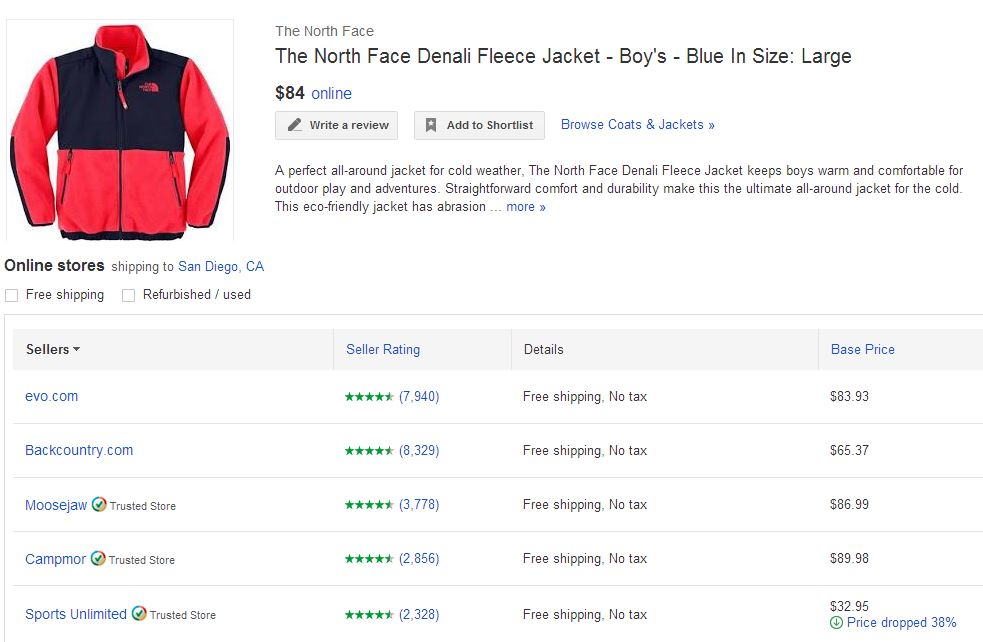5 Questions For Comparison Shopping Engine Compatibility

When you meet someone new there are usually 2-3 questions most people ask, basically a miniature friend interview. So what do you do for fun? Do you have a hot tub at your place?
Before you dedicate your time and money to online comparison shopping (CSE) campaigns, its a good idea to consider those same type of questions to see if the shopping channels are right for you.
Below is a list of questions you can ask yourself to see if comparison shopping engines are a good choice for your website.
Comparison shopping engines are designed to aggregate products for online shoppers to find the best option: based on product price, seller ratings, and shipping rates. What is going to differentiate you from the other merchants on those sites?
If you sell products which other merchants also sell (e.g you are buying from a manufacturer) consumers are going to compare your site and selling points since the products you sell are on comparison pages. If you aren’t competitive on price, shipping rates and similar metrics, you’re likely to get beaten out by other merchants on the comparison shopping engines.
Shoppers looking for a North Face Jacket for example, know that the jacket is the same no matter what seller they choose, so price, shipping and merchant ratings are a major factors in their purchase. In the example below (Google Shopping search) online shoppers have 5 different merchant options to choose from:

If your site has a better price, free shipping or outstanding merchant ratings you’re more likely to get a shoppers attention.
If you sell something which is unique, and not many other merchants sell (e.g you are the manufacturer, you have a deal with a manufacturer, your products are custom, etc.) you are at an advantage on the comparison shopping engines.
If I’m looking for a red polka dot 80’s style blazer for example, there may be only one or two sellers who have this item, so I can’t be as picky about price or shipping rats.
Many comparison shopping engines have restrictions on certain product categories such as tobacco, alcohol or supplement categories, among others. For example Google Shopping restrictsproducts in alcohol, tobacco, weapons and other categories. Similarly, Pricegrabber has specific requirements for office products and consumer electronics.
If the majority of your products are tobacco, wine, beer or supplements with certain ingredients you’re most likely not going to be able to list your products on the comparison shopping engines. Make sure you check the listing requirements for any of the comparison shopping engines you want to list on before you start the process.
Comparison shopping engines are a great option for smaller merchants, and merchants with smaller budgets, but sometimes you may just be too small. If you live in a one bedroom apartment you can’t host a party for 300 people.
If you sell under 100 products, its likely that you are going to have difficulty getting visibility on the comparison shopping engines, and you will have less flexibility cutting back poor performing products and restricting your data feed.
Comparison shopping engines are a tool online shoppers use to find and compare products. Price and shipping rates are major considerations for an online purchase. If you have pretty high margins, higher prices, or you’re shipping heavy items you’re probably not a great fit for the comparison shopping engines.

If comparison shopping engines are your car, data feeds are the fuel. All the product information comparison shopping engines get from your website (e.g price, product images) come from your data feed. It is imperative you have a data feed. If you don’t have one you’re going to need one for AdWords and retargeting anyway, so you might as well go for it.
The quality of your data feed, and how often you send , and update your product information is really important. If your data feed doesn’t have accurate information, if you change prices, or if you don’t send your data feed regularly your are going to lose sales.
On top of just having an accurate data feed that you are sending regularly and have automated, you should also have a data feed that is design to tailor to user searches and SEO.
Additionally, each CSE has its own feed format, in terms of what columns should contain, their order, file format, product categories names, product information, and countless other variables. Nextag does not allow certain phrases in product names: such as “below our cost, bonus or brand new” and Pricegrabber requires gender specification for all clothing products. You’ll need a different data feed for each comparison shopping engine,
Like any project, you should have a clear idea of what you’re looking for before you start. It’s probably not a good idea to go to the grocery store with no idea of what food you have at home, and what you want for dinner.
Are you looking for more product exposure outside of your website or do you want to list on the CSE just so your website is find-able there? How is your order volume on your site and other shopping channels? Are your competitors on the CSEs?
 How much can you spend?
How much can you spend?What’s your overall budget for the comparison shopping engines? If you spend $100 a day how much do you need to make to make your campaigns profitable or have a positive return on investment (ROI)? These are questions you need to sit down and ask yourself before you get started.
If you have an extremely low budget, a ton of price competitive competitors already on the CSEs, and your in the middle of re-designing your website, you should probably hold off.
So you’re ready to list on the CSEs, now comes the question- which comparison shopping engines can you list on, and which CSEs do you want to list on? Based on your goals you may want to choose comparison engines with higher traffic (you want more visibility), or maybe you want a CSE with a lower cost per sale since you have a low budget. Maybe your margins are really tight so you need comparison shopping engines which have higher conversion rates. To get an idea of what comparison shopping engines perform best for revenue, cost per click, traffic, conversions and other top metrics check out The Comparison Shopping Report.

If you just laughed at the idea of free time, your are definitely an online merchant. If you don’t have the time to actively manage a comparison shopping campaign though, its not going to do well. The dead office plant near my desk speaks to the lack of me paying attention to it.
If you aren’t going to check the quality of your data feed, cut products and change bids weekly for your comparison shopping campaigns, they are not going to have a cost of sale you want. Either dedicate your time,or delegate someone else’s time.
